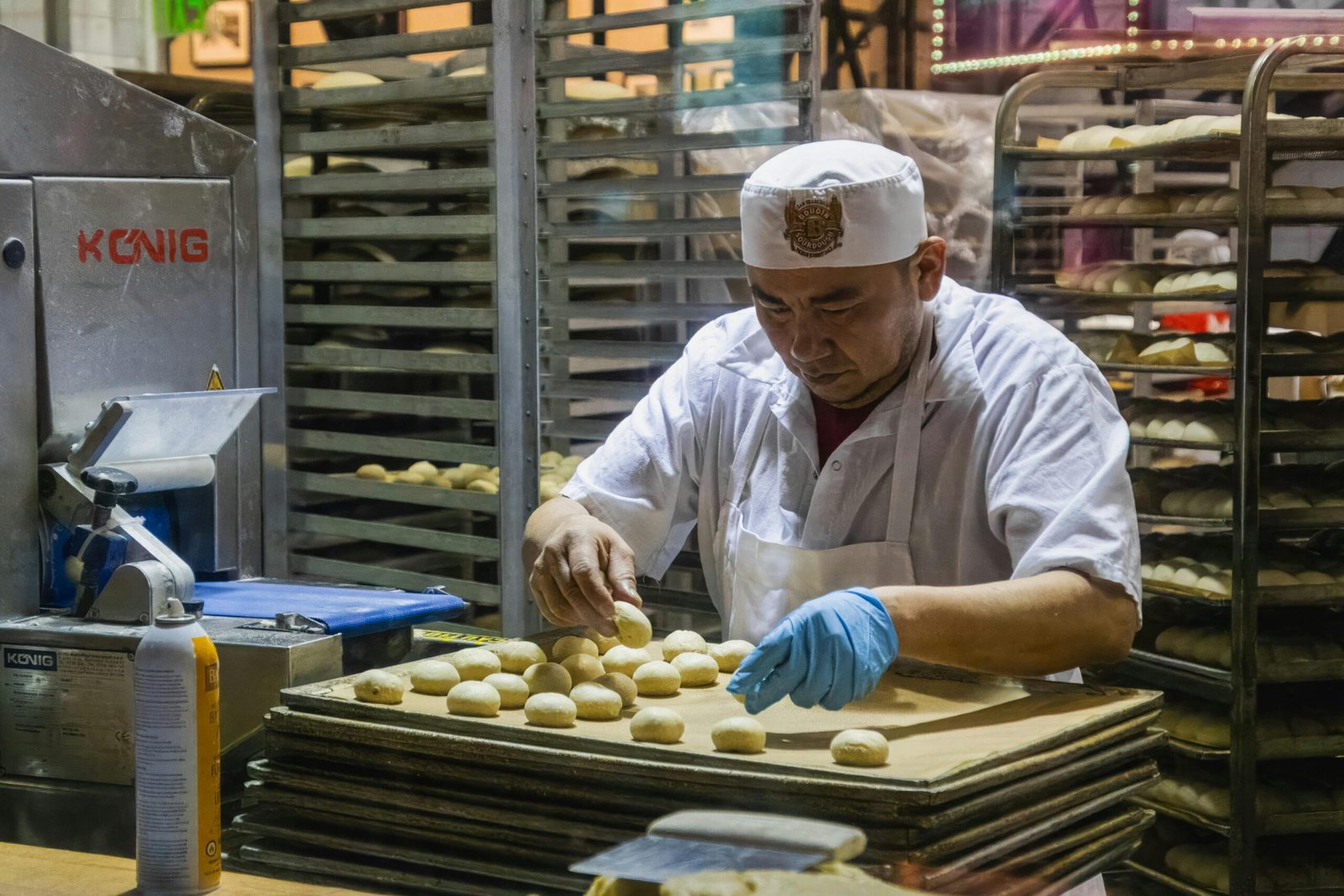When it comes to baking sheets, the smallest design detail can make a big difference. Have you ever wondered whether rimmed baking sheets really outperform rimless ones—or if the minimalist, flat design is the secret to better cookies and roasted vegetables?
This guide breaks down the pros and cons of both styles so you can choose the right baking sheet for your kitchen. From heat distribution and browning to cleaning and storage, here’s what every home cook should know.
Understanding Rimmed vs. Rimless Baking Sheets
Rimmed baking sheets feature raised edges around all four sides. They’re often made of carbon steel, aluminum, or enamel-coated metal and are designed to prevent spills while roasting or baking.
Rimless baking sheets, also called cookie sheets, have one or no raised edges. This open design makes it easier to slide cookies or pastries off without disturbing their shape.
Quick Comparison
| Feature | Rimmed Baking Sheet | Rimless Baking Sheet |
| Design | Raised edges on all sides | One or no raised edges |
| Best For | Roasting vegetables, baking meats, sheet cakes | Cookies, pastries, delicate baked goods |
| Heat Circulation | Slightly reduced airflow | Better air circulation for even baking |
| Ease of Use | Contains liquids and crumbs | Easier food removal with a spatula |
Performance and Design Differences
The material and construction of your baking sheet affect everything—from browning to cleanup.
- Enamel-coated carbon steel sheets heat evenly, resist sticking, and deliver rich browning results. They’re ideal for high-temperature roasting.
- Seasoned aluminum sheets conduct heat well but may need light oiling or parchment paper to prevent sticking.
Real-World Takeaway
Tests at 425°F show that enamel-coated, rimmed sheets achieve deeper browning in roughly 38 minutes, while aluminum rimless sheets produce evenly baked cookies with crisp edges.
In short: Choose rimmed for durability and spill prevention. Choose rimless for delicate baking and easy removal.
Recommended Baking Sheets
If you’re ready to upgrade your kitchen essentials, here are a few reliable options to consider. These products represent the best blend of durability, performance, and ease of use.
Best Rimmed Baking Sheet
Heavy-Duty Carbon Steel Sheet Pan (Enamel-Coated)
- Withstands high heat without warping
- Naturally non-stick enamel surface for easy release
- Perfect for sheet-pan dinners, roasted vegetables, and meats
Why it’s great: The enamel coating ensures even browning and long-lasting quality, making it ideal for cooks who value reliability and low maintenance.
Best Rimless Baking Sheet
Aluminum Cookie Sheet (Seasoned Finish)
- Lightweight and easy to handle
- Promotes consistent airflow for uniform cookie baking
- Requires minimal re-oiling for lasting performance
Why it’s great: It delivers crisp cookies and pastries every time, while the flat edge makes transferring baked goods effortless.
Runner-Up Option
Hybrid Non-Stick Aluminum Sheet Pan
- Combines rimmed structure with a low-profile lip
- Great for those who bake and roast equally often
- Dishwasher-safe for quick cleanup
Cleaning and Maintenance Tips
Your cleaning method depends on the surface material and design.
Enamel-Coated Baking Sheets
- Rinse immediately after use to avoid residue buildup
- Use a non-abrasive sponge or brush to protect the coating
- Avoid stacking to prevent rim damage
Seasoned Aluminum Sheets
- Wipe clean with warm water and mild soap
- Re-oil lightly after washing to maintain a non-stick surface
- Store in a dry, non-humid area to prevent corrosion
Keeping up with these routines extends the lifespan of your bakeware and ensures consistent cooking performance.
Which One Should You Choose?
If you often roast vegetables, bake meats, or make sheet-pan dinners, go for rimmed baking sheets. The edges keep juices contained and make cleanup easier.
If your focus is on cookies, pastries, or baked goods that need airflow, rimless baking sheets are your best friend. They allow for even browning and make sliding off delicate treats effortless.
For the best of both worlds, consider owning one of each. Many professional bakers do.
Final Thoughts
Choosing between rimmed and rimless baking sheets comes down to what and how you cook.
Rimmed sheets shine for roasting and durability, while rimless sheets excel in precision baking.
Both styles perform best when you choose high-quality materials like enamel-coated carbon steel or seasoned aluminum—and maintain them properly. Investing in the right sheet can truly elevate your cooking results.
FAQ
What’s the main difference between rimmed and rimless baking sheets?
Rimmed sheets have raised edges to contain spills. Rimless sheets have open sides for easy removal and better air circulation.
Which type is best for cookies?
Rimless sheets bake cookies more evenly and make transferring them easier.
How do rimmed sheets perform for roasting?
Excellent. They contain oils and juices during roasting, preventing messes and ensuring even browning.
What’s the best material overall?
Enamel-coated carbon steel offers the best balance of browning, non-stick performance, and durability.
How should I store my baking sheets?
Store rimmed sheets separately to avoid scratching the rims. Stack rimless sheets flat in a dry space to save room.

